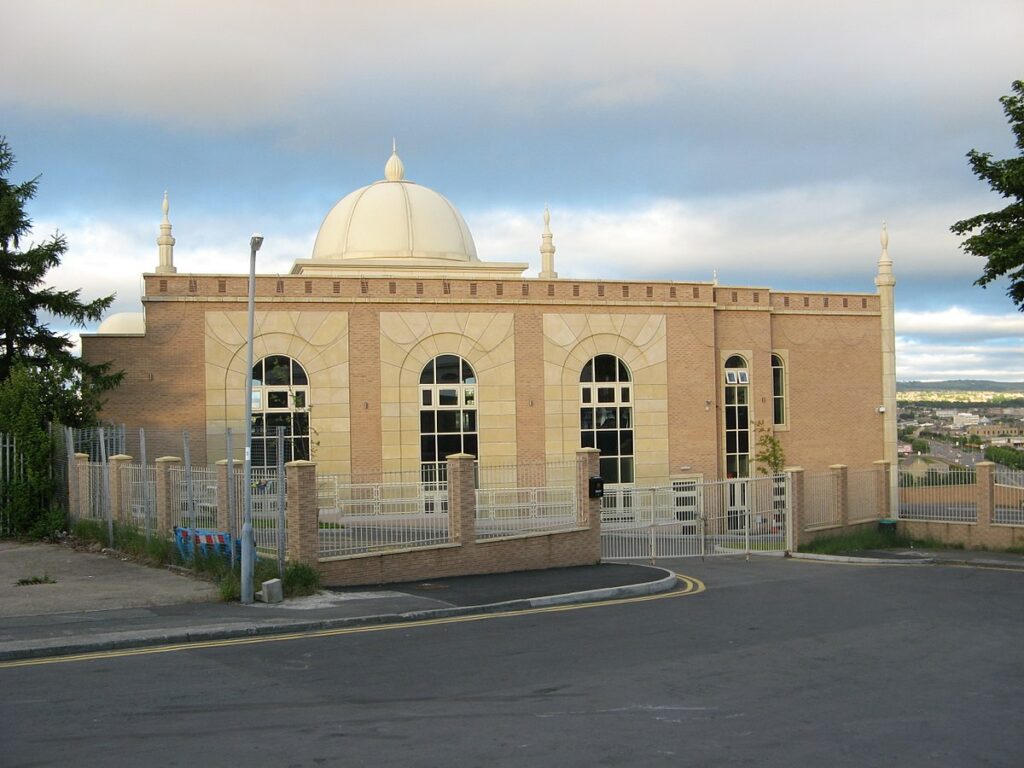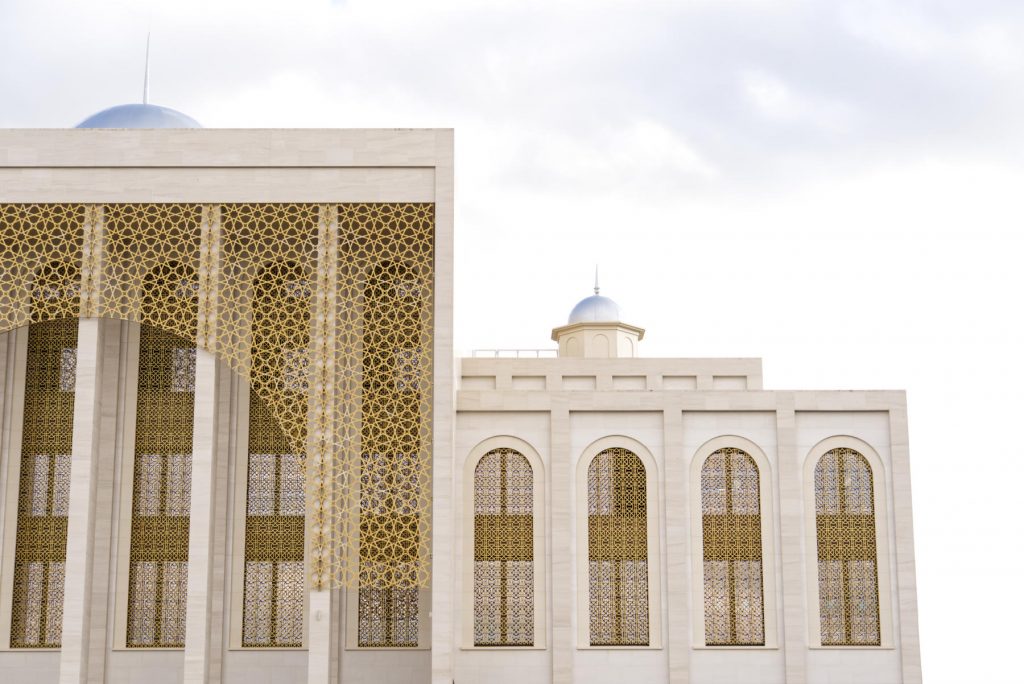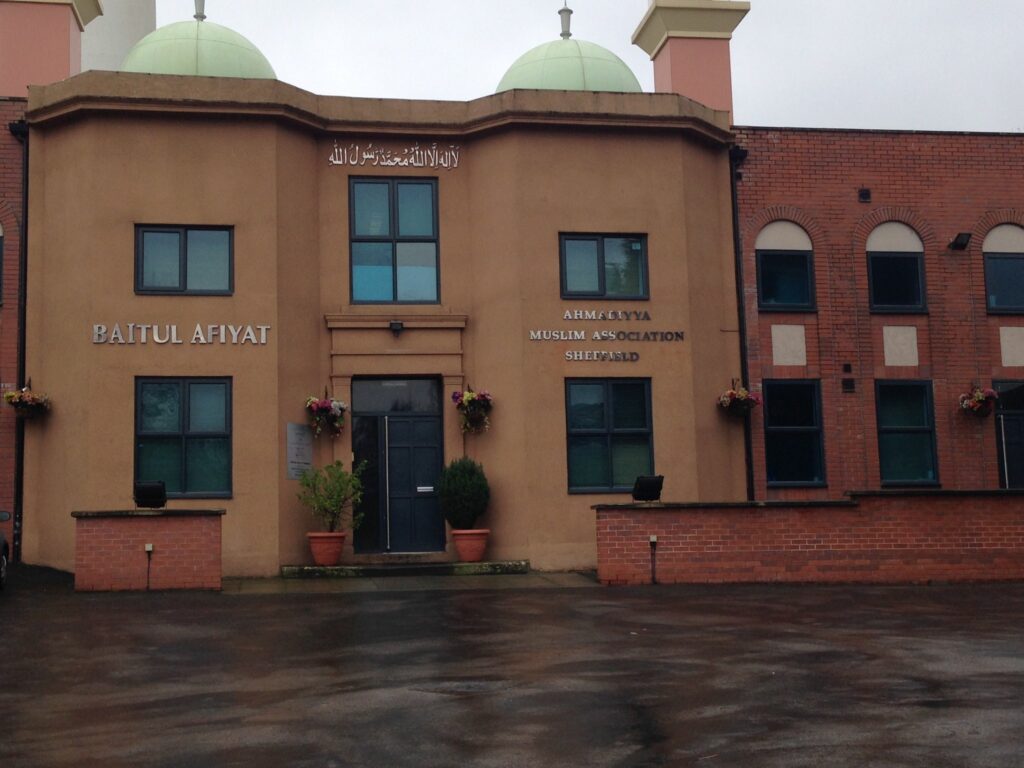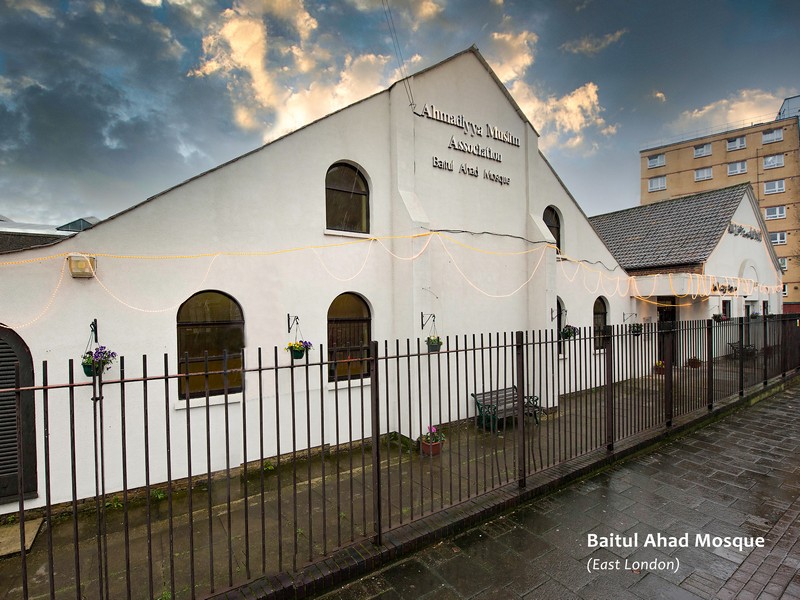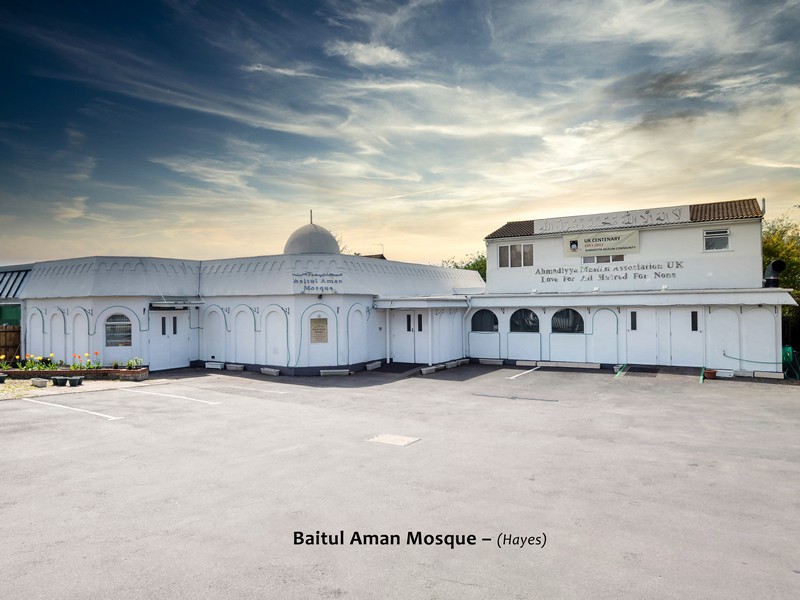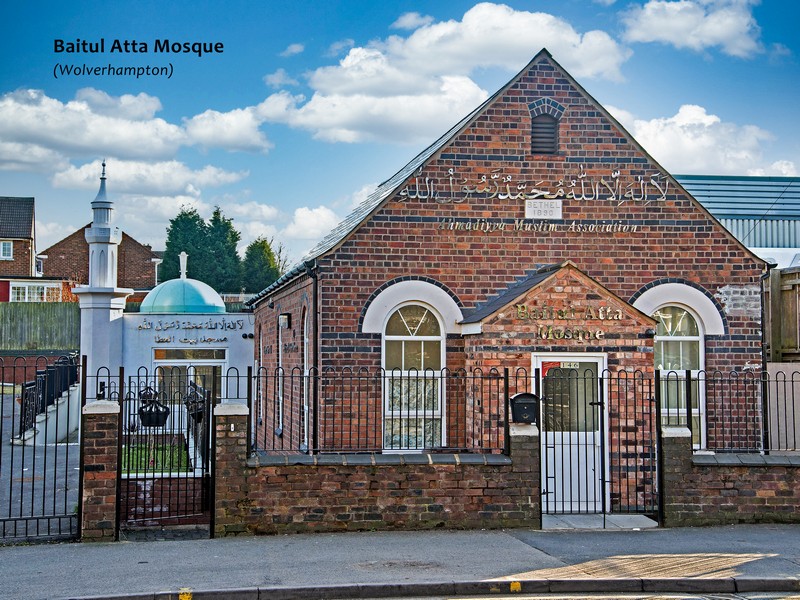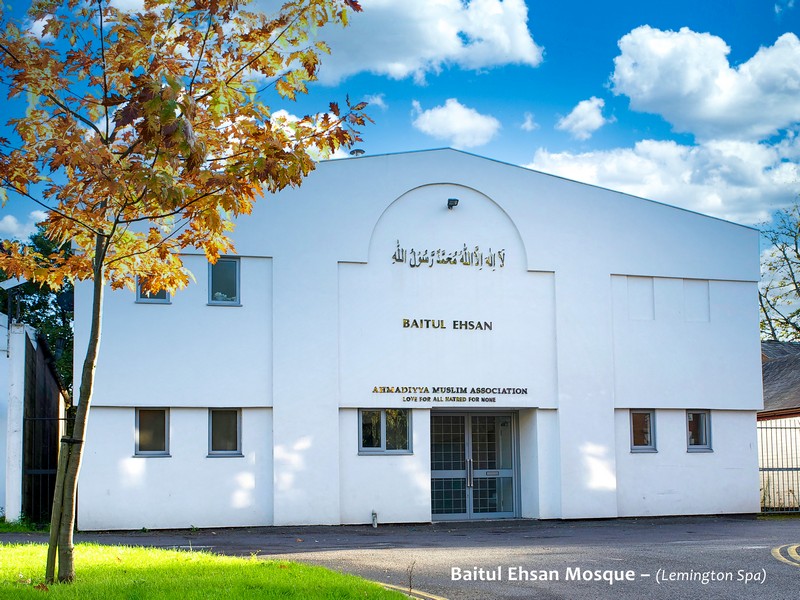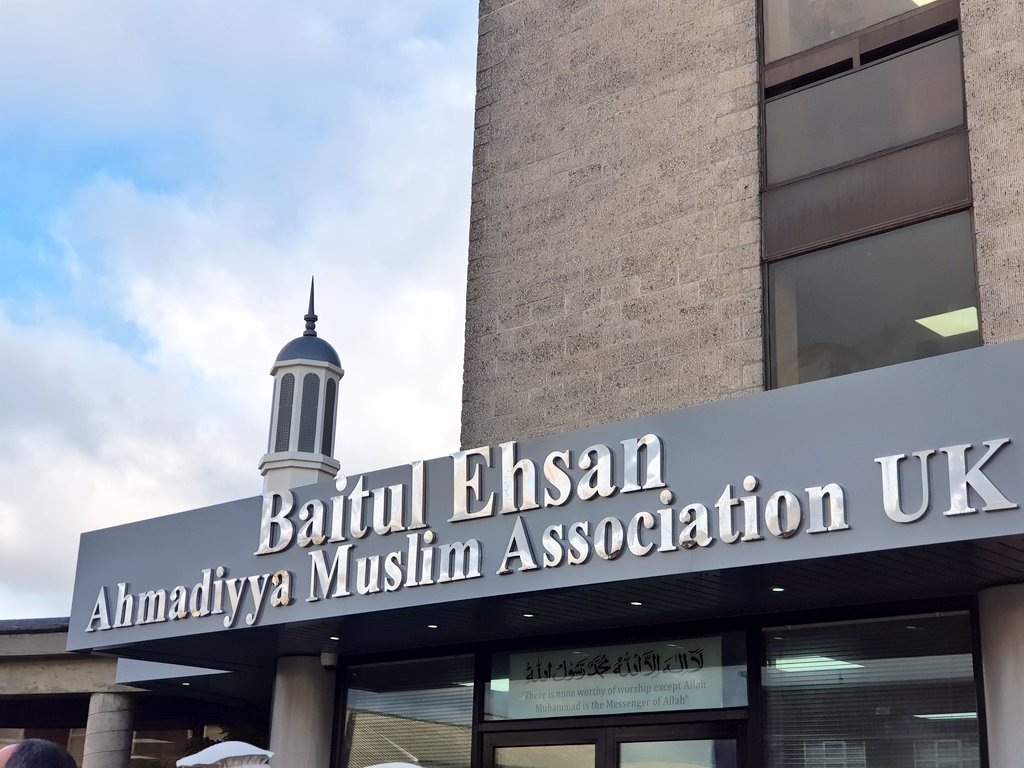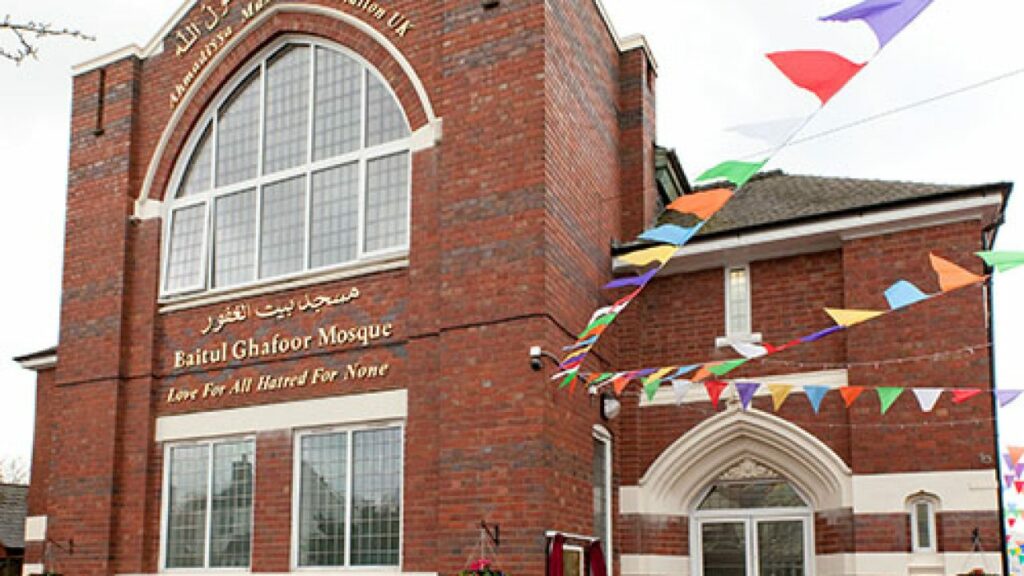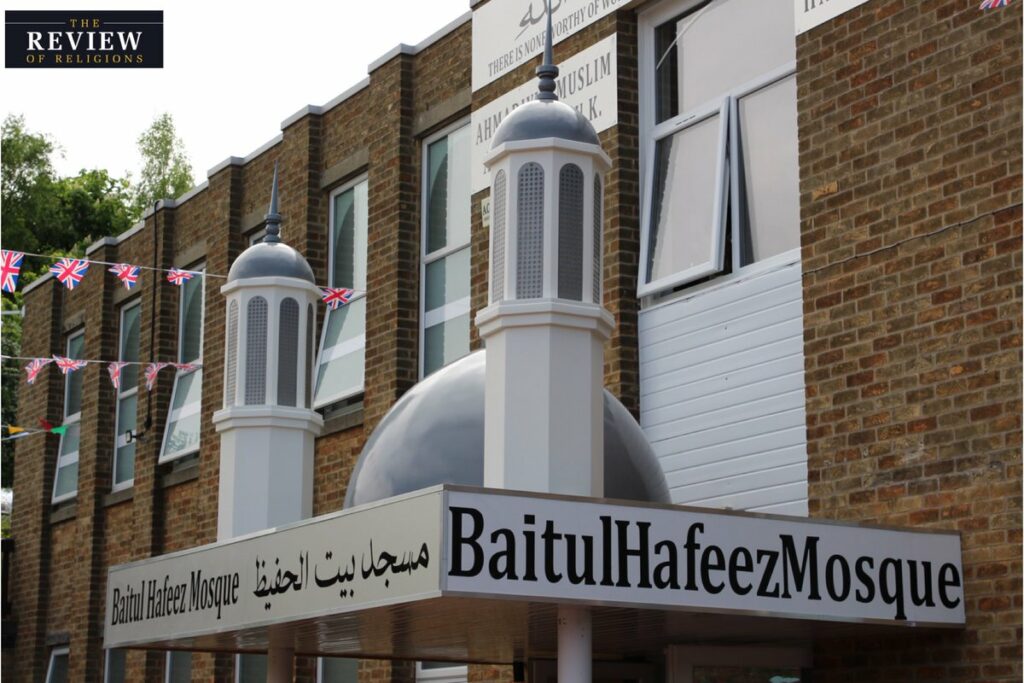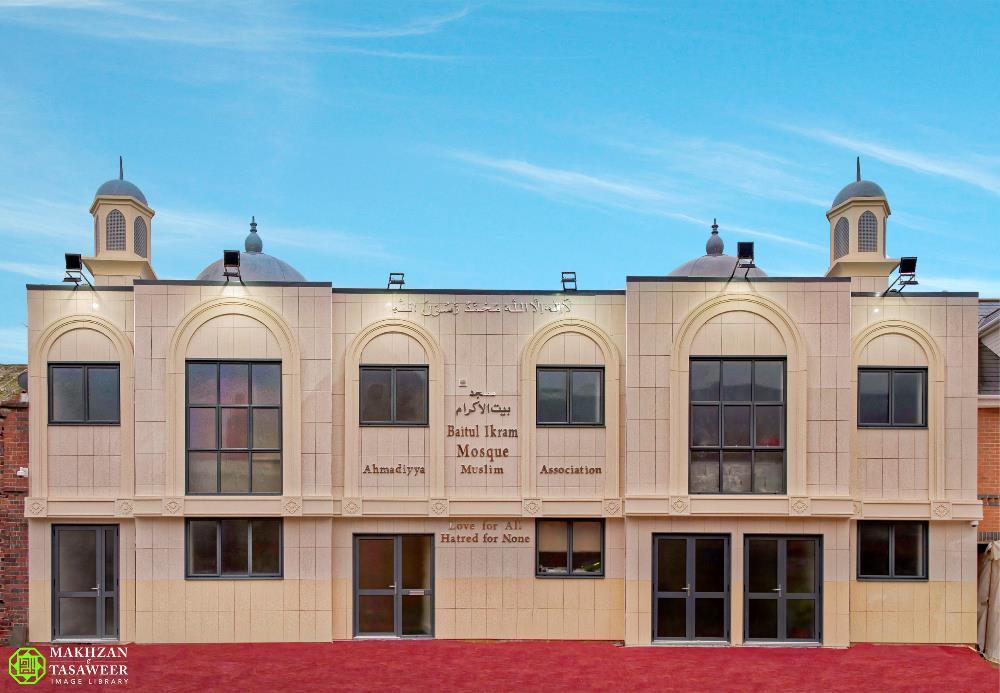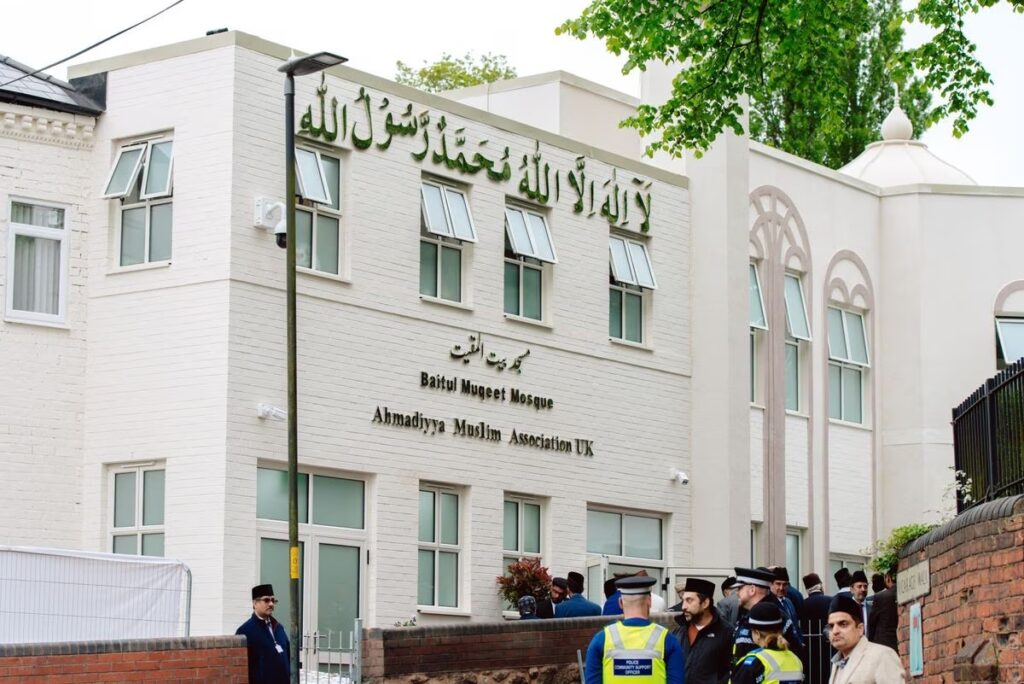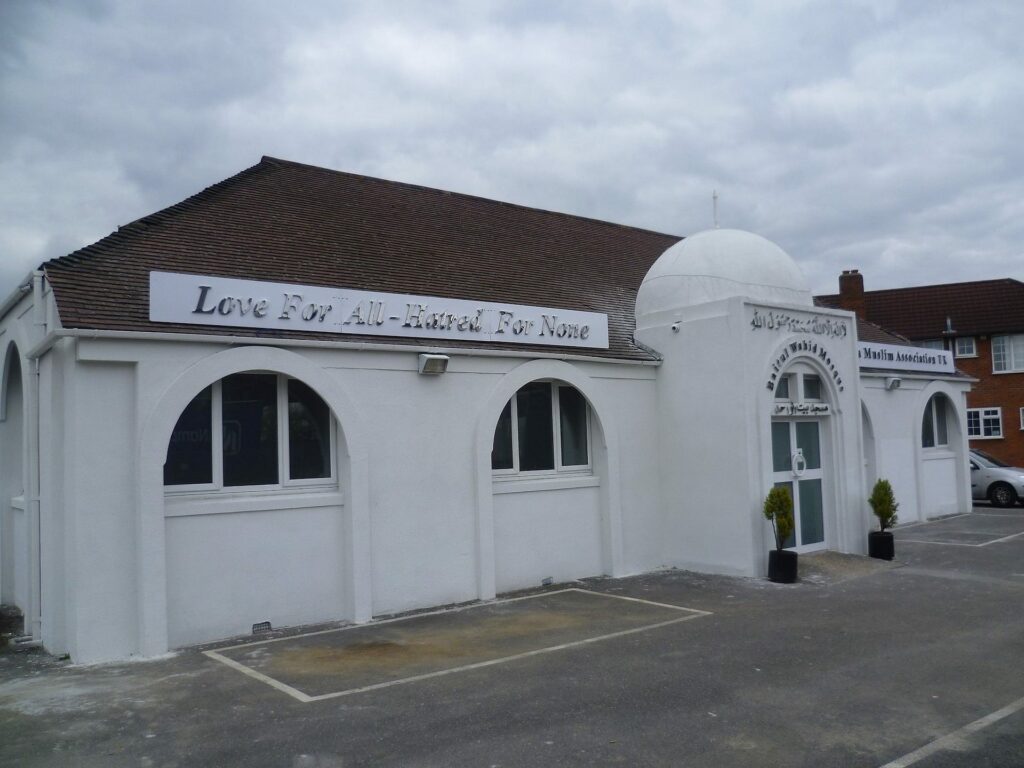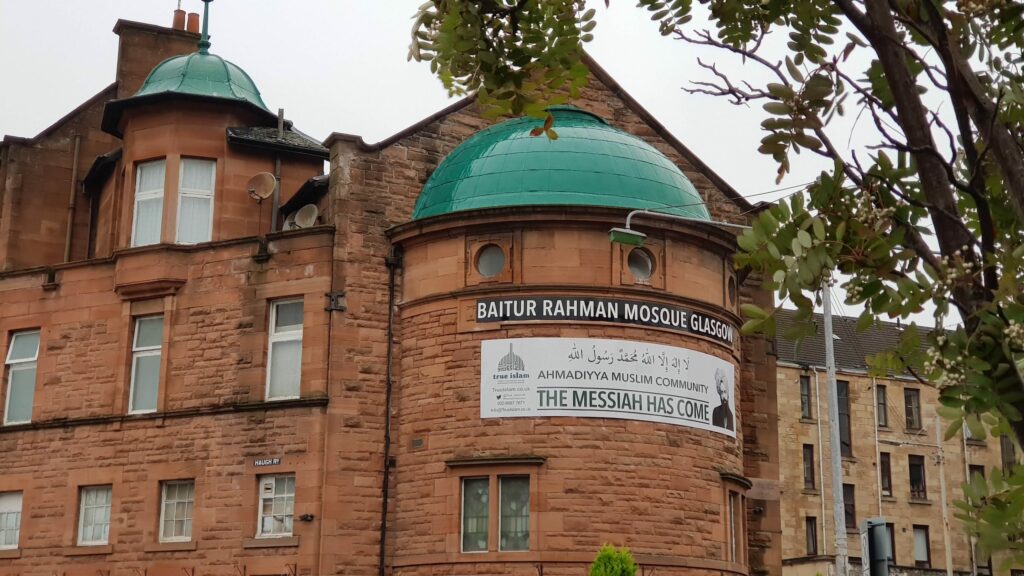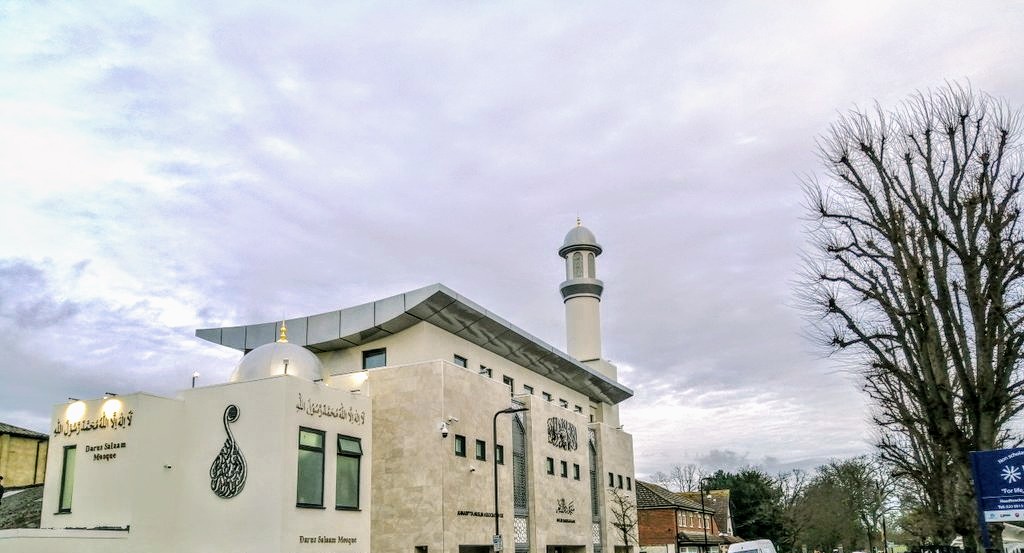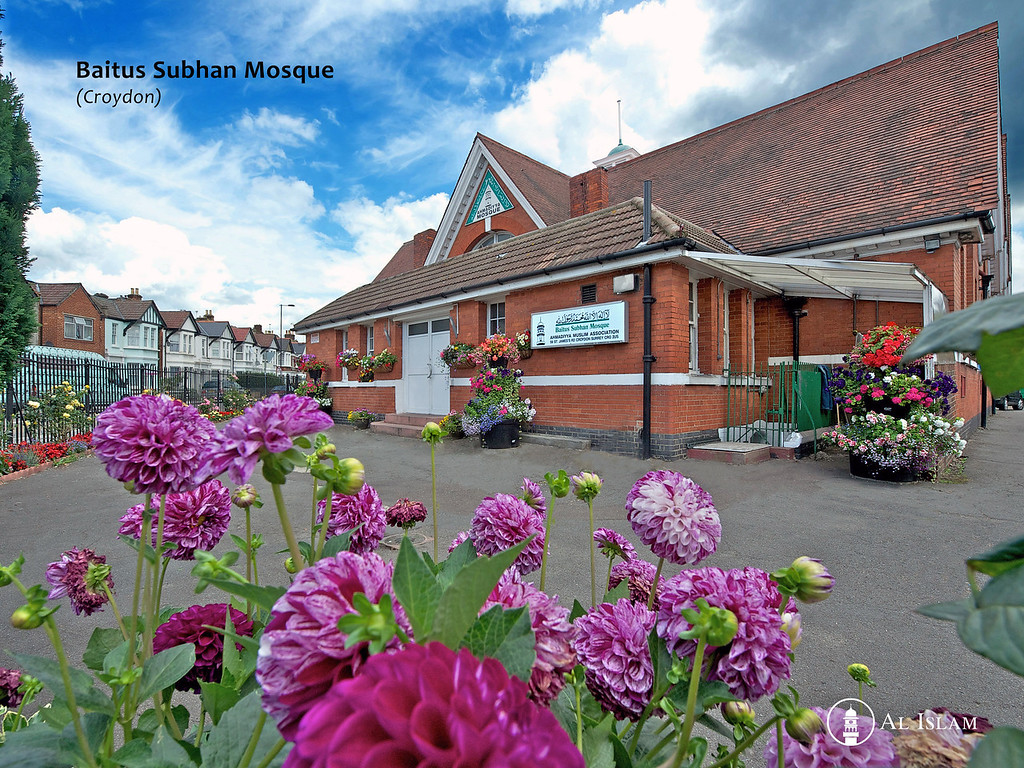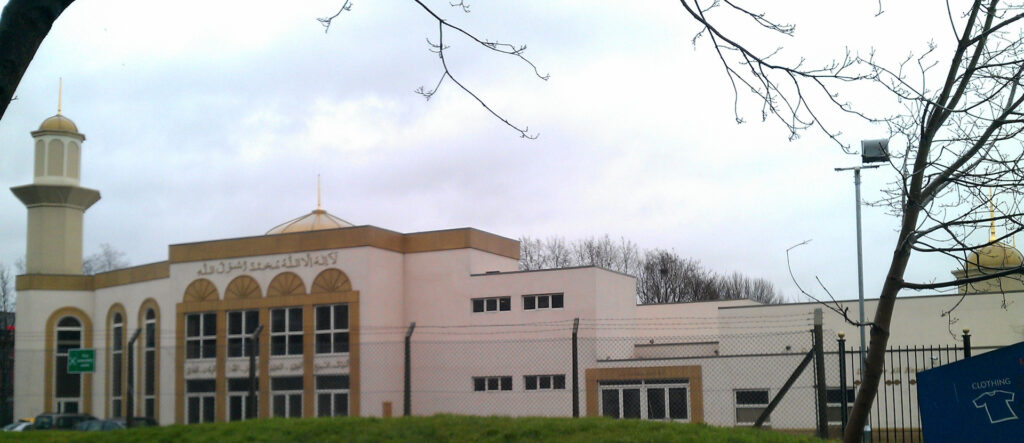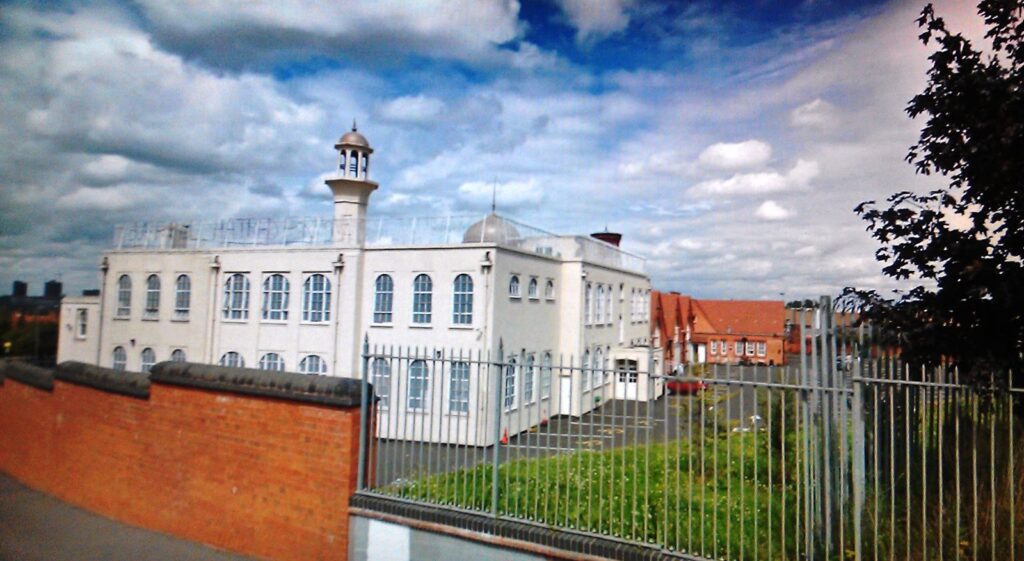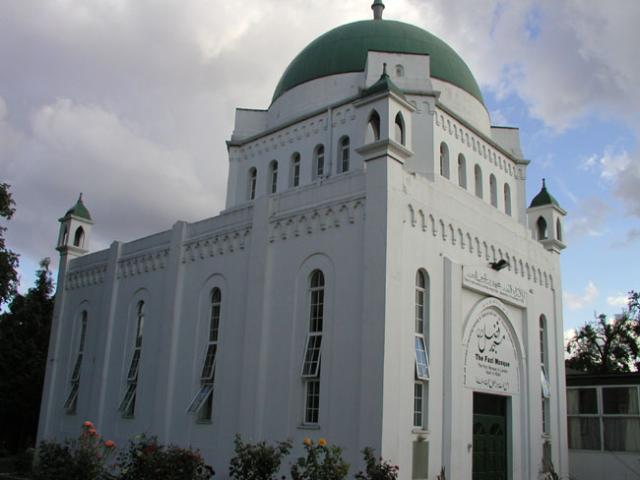The Importance of Mosques
From the (1) Holy Quran (2) The Ahadith (3) Promised Messiah’s(as) writings and (4) the instructions of the Khulafa.
Holy Quran
If you read the Holy Quran:
“And I have not created the Jinn and the men but that they may worship Me”. (51:57).
If you consider this verse of the Holy Quran, we learn that the purpose of man’s creation is to establish the worship of God. Therefore, the places most adorable and lovable to Allah are those that are supportive and helpful in achieving this purpose -namely the mosque or Masjid. Masjid meaning any place where you do ‘sajda’ (prostration) before God Almighty. The forehead touching the ground as practiced in Salat.
Allah says in the Holy Quran:
“Surely, the first house founded for mankind is that at Becca (Mecca), abounding in blessings and guidance for peoples”. (3:97)
Mosques are the retainers and containers of divine grace and blessings. That is why there is a great emphasis on the importance of building mosques in great numbers.
Again if you look at early history of man after the construction of Baitullah, hundreds and thousands of houses of worship were built till the time of the Holy Prophet(sa) who was the most true and the greatest worshiper of Allah. It is a pity that his own people did not permit him to build a mosque during his stay in Mecca. As the Holy Prophet(sa) migrated to Medina, he stayed for a short time in Quba, a suburb of Medina (three miles north of the city). Here was built the first mosque in Islam by the Prophet(sa) and his companions. It is called Masjid-E-Quba or Masjid-E-Taqwa (Mosque of Piety).
In Surah Tauba we read:
“A mosque that was founded upon piety from the first day, is surely more worthy that thou should stand therein to lead the prayer service”.
Some scholars believe that this verse is related to the building of this mosque.
When the second mosque at Medina Masjid-e-Nabwee was completed, the Holy Prophet(sa) is quoted to have said:
“I am the last Prophet and this Mosque of mine is the last Mosque.” (Muslim)
Muslims all over the world have built millions of mosques. As long as these mosques are built with Taqwa and solely for the worship of Allah and Muslims turn their faces to Baitullah in their prayers, they are all part of the last mosque built by the Holy Prophet(sa).
We Ahmadis are the followers of the Grand Prophet Muhammad(sa) and his Messiah and in these latter days, the building and maintenance of mosques is our prime responsibility as Allah says in the Holy Quran.
“He alone can maintain the Mosques of Allah who believes in Allah, and the last day, and observes prayer and pays the Zakat and fears none but Allah; so these it is who may be rightly guided.” (9:18)
These are people who may reach the goal.
The Holy Prophet(sa) on the importance of mosques
In addition to Hadith that I have already narrated, there are several more Ahadith that reflect on the importance of mosques.
- O ye people, praise Allah. Whoever builds a mosque for Allah, Allah, The Exalted, shall
build a house for such a one in paradise. - To Allah, the most adored places are the mosques and the most undesirable places are
market places. - Mosques are the houses of Allah and those believers who enter therein are the guests of
Allah. - Those who visit the mosques in darkness convey to them the good news that Allah shall
bestow upon them from Himself perfect light on the day of judgment. - For him who makes his ablutions at home and then walks to one of the houses of Allah to
discharge his obligations imposed on him by Allah, one single step of his towards the
mosque wipes out a sin and next step raises his status. - Whenever anyone of you enters a mosque let him pray that “O Allah open up for me the
doors of Thy Mercy”; and whenever anyone from among you leaves a mosque, let him pray
” O Allah, I seek from Thee Thy blessings”.
All these Ahadith amplify the importance of mosques in our lives. In helping us reform ourselves and our souls by purifying us, by bringing Muslims together and fostering brotherhood and unity. To be recipients of the blessings as noted in these Ahadith, it is incumbent that we give top priority to the building and maintenance of mosques.
During the period of Khilafat-i-Rashidah, wherever the sahaba/companions took the message of Islam, they erected mosques and filled the known world with houses of God and the Unity of God was proclaimed everywhere.
The Promised Messiah(as) on the importance of Mosques
The Promised Messiah(as) said:
“If you want Islam to progress build a mosque. Wherever our Jamaat is established, a mosque should be built. Our Jama’ats progress is founded on the construction of mosques. If there are only a few Muslims in a village or a city, build a mosque with good intentions and God will bring more Muslims to that place. It is not mandatory that the mosque be embellished or be a brick building. Wall off a piece of land and build a room with a thatched roof…” (Malfoozat Vol 7, p. 119 1984 Edition)
On laying the foundation of Mubarak Mosque in Qadian in 1883, the Promised Messiah(as) received the revelation:
“This is a blessed mosque to impart blessings. Every blessed work will be done in it.” (Braheen-i-Ahmadiyya Vol. 4, p. 559)
The Khulafa
Through the years since then, Jamaat Ahmadiyya has continued the building of mosques under the guidance of the Khulafa.
In his Friday Sermon March 19, 1999, Hazrat Khalifatul Massih IV said:
“Among the guidelines I had issued to the Jama’ats, the most significant advice was that they should start building houses of God and build them in great numbers. Since it is God’s work to fill these mosques, He will bring people to these mosques….Our efforts should not be limited to building of central and big mosques. In fact, every community where there are a few Ahmadis we should look into building small mosques….”.
In 1968, Hazrat Khalifatul Massih III gave a series of sermons elaborating on 23 great reasons for the building of Baitullah. He said: “In the building of Baitullah as the First House of God, we are instructed to build houses on the same model and purity at every place so as to provide mankind the same benefits as contained in the verse “Mubarakaon wa hodal lilaalameen” (abounding in blessings and a guidance for all mankind). In the next 20-25 years people will be entering Islam in great numbers and you will need to prepare now by building mosques to provide for these people consistent with these verses of the Holy Quran.”
Hazrat Khalifatul Massih II
Huzoor said
“May mosques be constructed from one end of the world to the other and may Azan be heard from every mosque. Wherever the sun may rise, it may see that the holy name of God is being raised there. My desire is that there should be a mosque at every place in the world”.
What we see in Jamaat Ahmadiyya today is the zeal to send missionaries worldwide and to build mosques worldwide. This is an offshoot of Tehrik-i-Jadid, a plan launched by Hazrat Khalifatul Massih II in 1934. Huzoor described Tehrik-i-Jadid as a stepping stone to the establishment of the new world order.
“We need manpower to reach the entire world population. We need money to attain this noble goal. We need determination and steadfastness to accomplish this great task. We need desperate prayers to attain this purpose which could attract God’s special favors. A composition of all these things is known as Tehrik-i-Jadid” (Alfazal Vol. 30, No. 280)
…”All demands of Tehrik-i-Jadid have been introduced for the reason that you could become manifestation of Allah’s attributes.” (Alfazl Vol. 15, No. 283)
Facts and Figures
Exclusive of Pakistan, we have over 10 thousand mosques all over the world; Asia: 815; Australia and Pacific Islands: 17; Europe: 54; North America, Central America and South America: 59; Africa: over 9000; the total comes to over 10,000.
India: 1030; Indonesia: 310; Rabwah: 50 and Qadian: 5.
Brief History Of Mosques
1922: Building in the heart of the city of Chicago, Wabash Mosque, was acquired. The money for this was donated by Ahmadis in India ($3000).
October 23, 1926: Fazal Mosque in London was inaugurated. Majority of the money was contributed by Lajna Imaillah (95,000 RS).
April 6, 1950: The American Fazal Mosque was purchased ($42,000).
1952: Fazl Umar Mosque in Dayton, Ohio was the first Muslim House of Prayer in the USA. Erected from ground up by Jamaat Ahmadiyya.
June 22, 1963: Mahmud Mosque Zurich, Switzerland.
1959: Fazl Umar Mosque; Hamburg, Germany.
July 21, 1967: Nusrat Jehan Mosque, Copenhagen, Denmark.
September 10, 1982: Basharat Mosque, Pedroabad, Spain (first mosque in 700 years).
August 19, 1983: Baitul Huda Mosque, Sydney (first mosque in Australia).
July 3, 1989: Baitul Awal, Guatemala.
JuIy 7, 1989: Baitul Hameed Mosque, Los Angeles, CA USA.
October 16, 1992: Baitul Islam Mosque, Toronto, Canada (largest mosque in the west).
October 14, 1994: Baitur Rahman Mosque, Silver Spring, MD USA.
Other mosques in Qadian (total of 5), the Aqsa Mosque built in 1876 by Hazrat Mirza Ghulam Murtaza, father of the Promised Messiah(as). The mosque was extended several times over the years. A lofty minaret was built in 1903 in the mosque’s courtyard called Minaratul-Masih. The Noor Mosque was built under Khalifatul Massih I(ra)) on April 23, 1910.
After moving to Rabwah, Pakistan in 1947, the first mosque built by Khalifatul Massih II was the Yadgari Mosque, a mosque to remember, a symbol of our migration from Qadian to Pakistan. Thereafter, several mosques (total of 50) have been built including the Mubarak Mosque, Lateef Mosque and the Aqsa Mosque.
Future Plans
Although all the Khulafa emphasized the importance of building of mosques, the pace of building mosques increased after 1982 consistent with the expansion of the Jamaat.
In his Friday Sermon May 14, 1989, Huzoor said:
“I wish Germany would be the first European country in Jamaat Ahmadiyya to be bestowed with the ability to build 100 mosques.”
In addition, in the African continent, at Huzoor’s direction, a scheme of building hundred mosques per country has begun in the following African countries, Ghana, Nigeria, Liberia, Ivory Coast, Gambia, Borgina Faso, Senegal, Guinea Bassau, Benin, Togo, Niger, Congo, Kenya, Tanzania and Uganda.
Etiquettes in the Mosque
- The mosque is an Islamic place of worship devoted to the remembrance of God; it may also be used as a meeting place for religious affairs. Nothing should be done there that might desecrate it.
- None should indulge in gossips in the mosque. One should either be praying there or engage himself in the remembrance of God or the people should talk about the religious affairs – but, of course this talk must not disturb those who are engaged in their Prayers.
- On entering the mosque you should offer the following prayer: “Bismilla hissalato wassalamo alaa Rasoolillahi Allahummagh firlee zonoobe waftah lee abwaba rahmatika.”
- You may offer two Rakaat Nafl on entering the mosque; it will be something like gratitude to God on enabling you to reach the mosque for a virtuous deed (the Prayer). It will be a means of reward from God the Almighty.
- If somebody is praying, you should not pass in front of him – of course you can do so if you pass a little away from the place of his prostration.
- It is very undesirable that the people should talk loudly or do some thing undesirable – these things disturb the people who are engaged in prayer at that time.
- The mosque must always be kept clean and if possible some scent should be used there to make the place very much agreeable; nothing dirty should be left there; it should be removed as early as possible.
- You should not eat anything that gives bad smell, before going to the mosque; your mouth odour will be very disturbing to others.
- You should not spit inside the mosque or on its stairs.
- Do not engage yourself in buying or selling things in the mosque nor should you talk of trade there.
- It is very undesirable that the announcement be made in the mosque about the lost property; of course if the missing thing was lost from within the mosque then the announcement is permissible to be made within the mosque.
- Those who come late should not jump over the heads of others to go to the front lines.
- Small children who might make noise or who might urinate there, should not be brought to the mosque.
- When the Imam is delivering Friday Sermon, the audience must maintain silence; no talking should be carried on; even if somebody has to be told to silent, he should not be told by words of mouth; you should just point to him that he should keep silent.
- When you come out of the mosque, you should pray in the following words: “Allahumma innee as-aloka min fazlika wa rahmatika.”

